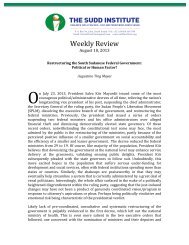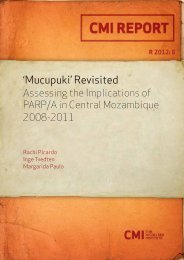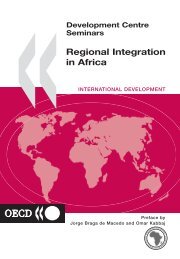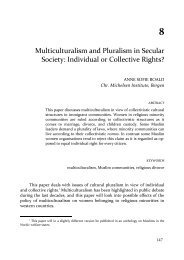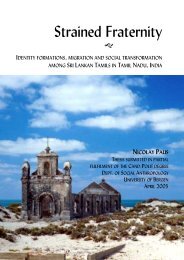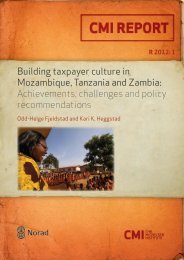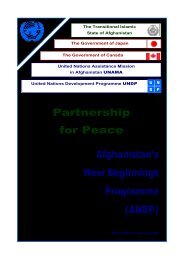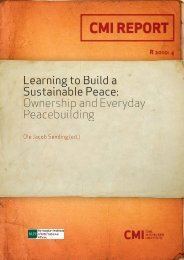Download (pdf) - CMI
Download (pdf) - CMI
Download (pdf) - CMI
You also want an ePaper? Increase the reach of your titles
YUMPU automatically turns print PDFs into web optimized ePapers that Google loves.
<strong>CMI</strong> REPORT DECENTRALISATION AND GENDER R 2008: 9<br />
Photo 3. From left: A Village Executive Officer, a Ward Executive Officer, and a Village Chairman during a<br />
community meeting in Moshi rural (by Siri Lange)<br />
Cooperation and participation at community level<br />
All informants underline that the Chagga are hard working and ambitious, used to interacting with<br />
outsiders, fast to learn and willing to adapt to new customs. This creates a positive basis for<br />
interacting with all outsiders, including donors.<br />
Tradition of financial contributions<br />
The Chagga have a tradition for contributing financially to their local community. If somebody does<br />
not contribute they are sanctioned. An example was given:<br />
"We need 15% local contribution to build schools It happens that someone does not want to<br />
contribute, then we go and se them individually. If they say that they don't have children<br />
who will go to that school, we tell them that your children were educated by earlier funds -<br />
now you should contribute. If they still don't want to pay we take something from their<br />
house and sell it, i.e. chair. Then they will learn that it is better to pay."<br />
According to our informants, poor members of the community are not forced to pay. In some cases<br />
the village leaders contribute on their behalf, and then the poor are asked to work for the families of<br />
those who paid for them for a certain period of time.<br />
25



